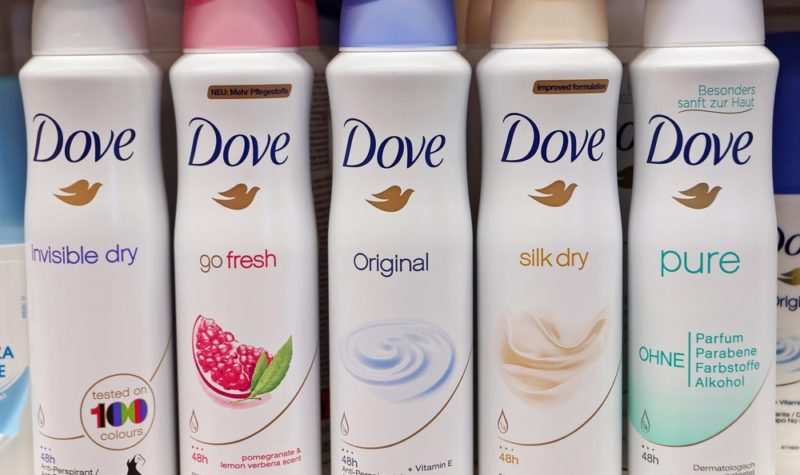Unilever a Safe Haven from Brexit?

Highly rated Unilever shares at 3,069p, having fallen from their April peak of 3,334p, begin to have dividend attractions.
Unilever (ULVR) is a long established Anglo/Dutch company founded at the end of the 1930s when Lord Leverhulme (Sunlight Soap/Lifebuoy Soap) merged Lever Brothers with the Dutch van den Bergh company (Blue Band margarine). It has traditionally had two operating head offices – one in London and one in Rotterdam. Crucially, it now reports in Euros and thus has an investment profile which makes its shares a particularly pertinent example of the Brexit/Remain investment conundrum.
Essentially, Unilever shares, like Reckitt Benckiser, have usually been highly rated despite that its actual historic profits and earnings record, although good, often do not seem to fully justify the rating. The justification for such a premium valuation of Unilever shares is self evidently attributable to the following factors:
– That Unilever will be one of the beneficiaries of China’s growth into a regular consumer economy. Just as the mining companies were formerly one of the best and obvious ways of investing in China’s earlier infrastructure growth stage, Unilever plans to sell them ice cream, body care and food products just as it sells them to consumers in other parts of our constantly consuming globe.
– That Unilever is as a global provider of consumer staples and essentially an earnings growth share and not a cyclical one.
– That the share is consequently relatively more reliable and predictable when compared with other shares and sectors.
– That the record shows that Unilever has been a share to be in longer term, compared to the market as a whole. Over five years the FTSE100 Index has risen by 3 per cent in contrast the Unilever share price has risen nearly 60 per cent – twenty times the increase in the Index.
A little history…
The shares peaked at 3,334p last April. They have since come down 9 per cent to 3,037p (last seen) having crashed through the ceiling of a previous approximate trading range of between c. 2,400p and c. 3000p – or about 25%.
I deduce that at that point the shares, were selling at a historic PER of 27 times, a striking illustration of the extent to which the market was, at that stage, willing to a pay a high premium for what seemed like the reliability of expected returns in an unreliable looking market. Recently, Unilever equity has been treated by the market almost as a haven share. Looking at the price to earnings ratio, investors pretty much appeared to be ignoring what they saw and instead valuing the share on the momentum of a share price built on the company’s reputation for reliability. All this is despite the fairly pedestrian growth – the latest reported calculations show that Unilever earnings per share grew at a rate of just over 3 per cent over five years, although the dividend grew at a reported 7.8 per cent.
The position now…
The share price despite having fallen 8 per cent from its April high of 3,334p has nevertheless managed to outperform the market as a whole both over the last twelve and six months. Over 12 months the shares are (last seen) up 10 percent whilst the FTSE 100 market is down nearly 12 per cent, making it a relative outperformance of almost 22 per cent; over the last six months Unilever shares have also risen 10 per cent whilst the market has moved up a smidgen at 0.5 per cent, giving a relative performance of around 9.5 per cent. If big institutional fund managers were to look for shares in their portfolios on which to take profits, then Unilever is potentially one of them.
Unilever and Brexit…
For a share that almost exudes a patina of reliability, the UK stay or go referendum is an inconvenient area of uncertainty. The management, no doubt with one eye on its big shareholders, has written an open letter to its employees, stating the obvious truth that as an integrated business of two halves (one in the UK and one in the EU) any decision by the UK to leave the European market would oblige the management to look at the financial consequences of such a move. Unilever’s Anglo-Dutch operation has been around a long time, since before the foundation of the EU. However, it is a cost conscious company operating in highly price competitive markets. No doubt, in the event of any new tariff wall springing up between the UK and European markets, it would be obliged to consider the most cost effective way of arranging its operations to the satisfaction of shareholders rather than employees. The fact that it has put its employees on such a warning may be viewed as reassuring news for international shareholders. A new uncertainty has in part been addressed in principle, although what it would mean in practice will depend on events if or when the UK finds itself outside the big European trading bloc.
The market in its current consensus view estimates that the shares, at 3,069p (last seen), stand at a price to earnings multiple of 21 times this year’s forecast earnings per share of 146.6p and 20 times next year’s forecast earnings of 158p. That seems by recent historic values good value, particularly since the prospective estimated dividend yield for this year and next is 3.1 per cent and 3.4 per cent respectively.
In the event of a Brexit, the company will almost certainly have to show a ruthless attitude to UK costs. On PER and estimated dividends the shares look good value given the referendum uncertainty.
Comments (0)